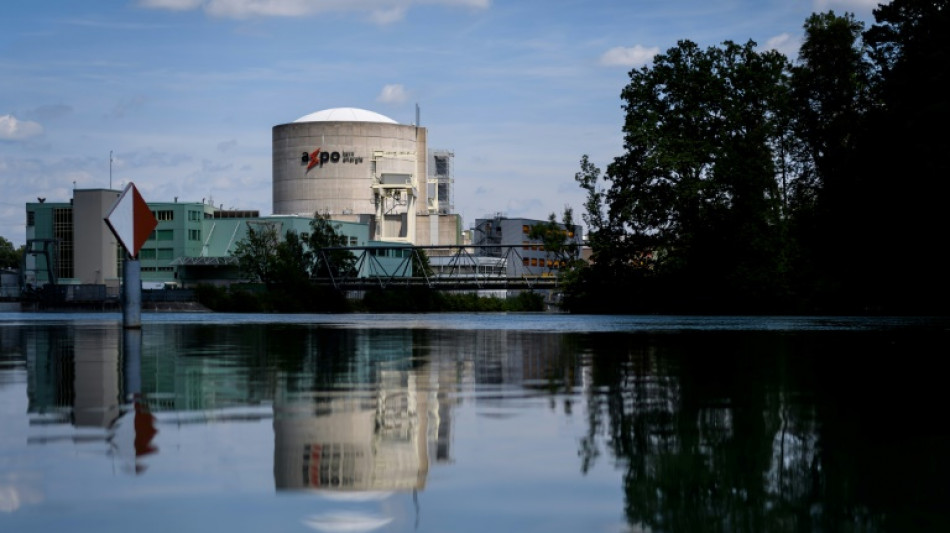
-
 Palestinians welcome ICC arrest warrants for Israeli officials
Palestinians welcome ICC arrest warrants for Israeli officials
-
Senegal ruling party wins parliamentary majority: provisional results

-
 Fiji's Loganimasi in for banned Radradra against Ireland
Fiji's Loganimasi in for banned Radradra against Ireland
-
New proposal awaited in Baku on climate finance deal

-
 Brazil police urge Bolsonaro's indictment for 2022 'coup' plot
Brazil police urge Bolsonaro's indictment for 2022 'coup' plot
-
NFL issues security alert to teams about home burglaries

-
 Common water disinfectant creates potentially toxic byproduct: study
Common water disinfectant creates potentially toxic byproduct: study
-
Chimps are upping their tool game, says study

-
 US actor Smollett's conviction for staged attack overturned
US actor Smollett's conviction for staged attack overturned
-
Fears rise of gender setbacks in global climate battle

-
 'World's best coach' Gatland 'won't leave Wales' - Howley
'World's best coach' Gatland 'won't leave Wales' - Howley
-
Indian PM Modi highlights interest in Guyana's oil

-
 Israel strikes kill 22 in Lebanon as Hezbollah targets south Israel
Israel strikes kill 22 in Lebanon as Hezbollah targets south Israel

Switzerland reopens door for new nuclear power plants
Switzerland said Wednesday it was open to building new nuclear power stations in the long term, given new geopolitical uncertainties, climate targets and population growth boosting the demand for electricity.
The Swiss approved the gradual phase-out of nuclear power in a referendum in 2017, by banning the construction of new power plants.
That law was the result of a long process initiated after the 2011 Fukushima nuclear accident in Japan, triggered by a tsunami.
However, "since 2017, the situation on the electricity market has changed radically", Energy Minister Albert Rosti told a press conference, following a government meeting.
Furthermore, last year voters backed a new climate bill aimed at steering the country towards carbon neutrality by 2050.
Rosti said new nuclear power was "not an option" in the short or even medium term.
"But to be ready, if it is necessary in the long term, in the next 15 years I would say, we must start now," he stressed.
His ministry will submit an amendment to the nuclear energy law by the end of the year.
Parliament would then have to debate it and the public would have to vote in a referendum.
"We are not saying that in 10 years there will be a new power plant... but we are responsible for leaving the door open to all possible technologies," said Rosti, stressing that if the process was not initiated now, it will "perhaps be too late in 20 years".
As the wealthy Alpine nation hopes to achieve carbon neutrality by 2050, the government said it needed to be open to different technologies -- and the ban on new nuclear plants was "not compatible" with that objective.
The four nuclear power plants currently in service provide around a third of Switzerland's total electricity production. They can continue running as long as they remain safe.
When they eventually have to close, the government fears renewable energy might not be able to plug the gap.
"At the time, we had imagined producing the missing electricity using gas-fired power plants," but "this option has become almost unthinkable" to achieve carbon neutrality, Rosti explained.
He said the lifting of the ban on new nuclear power plants was a "fallback option, just in case".
The announcement was immediately criticised by Greenpeace Switzerland as well as centrist, socialist and environmentalist parties.
"The construction of a new nuclear reactor will come too late to effectively reduce our carbon emissions and will not free us from our dependence on third countries for our energy supply," said Greenpeace Switzerland.
O.Lorenz--BTB


